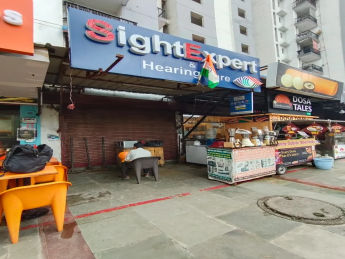The Digital Revolution: Real Estate Apps and Their Impact
Bricksnwall Trusted Experts

The evolution of the real estate platform into a digital property marketplace has provided buyers, sellers, and investors with significant convenience and accessibility, due to cutting-edge real estate apps. This evolution has transformed the complete property management process into a one-click real estate mobile app that incorporates cutting-edge technology capabilities and trends. These revolutionary smartphone apps allow property enthusiasts to engage with real estate agents and brokers, take virtual tours, research properties in different places, execute online transactions, and much more.
Features of Real Estate Apps and Their Impact
The following are the primary features included in the real estate mobile apps.
1. Detailed Property Search and Listings
The real estate app search tool allows users to
explore a wide choice of properties and collect details such as property
location, price range, land size, dimensions, floor plans, property
characteristics, and much more. The app also includes a list of various
properties, as well as the owner's or contact agent's information, for easy and
rapid access. Real-time listing updates and extensive property descriptions
ensure that users obtain the most up-to-date information.
2. Advanced Filtering and Sorting Options
Advanced search filters in real estate mobile apps improve the property search experience by allowing users to fine-tune their research with pinpoint accuracy. With a sophisticated set of filters, customers may narrow their searches by property type, pricing, listing status, square footage, number of bedrooms or bathrooms available, property furnished/unfurnished, commute time, amenities, and many other unique characteristics. This sophisticated level of personalization ensures that customers receive more detailed and specialized search results, saving time and presenting them with properties that are actually relevant to their own preferences.
3. High-quality images and 3D visualizations
Integrating high-quality photos and 3D visualizations
into real estate mobile apps improves the user experience by providing a vivid
and immersive preview of available homes. High-resolution photographs and
videos capture precise details, giving potential purchasers a realistic and
enticing view of the property's beauty and characteristics. The integration of
3D visualizations takes it a step further, allowing customers to virtually
explore the property layout, which improves their grasp of spatial and design.
4. Augmented reality for virtual tours
Augmented reality is one of the most appealing elements in modern real estate mobile apps. It transforms the way people engage and discover their ideal homes. Unlike static images or standard videos, augmented reality provides an interactive experience that goes beyond conventional boundaries. Users may easily navigate different regions of the property, from the elegant kitchen and lively play areas to the comfy lounge, appealing living room, and quiet bedroom, obtaining vital insights about the home's 3D layout.
5. Instant alerts and push notifications
Real estate mobile apps provide users with push notifications and alerts about new listings, price changes, property updates, and other important real estate news. By enabling push notifications, consumers can receive fast alerts and updates on properties they may be interested in buying. Whether they want to stay up to speed on new home developments or find an investment opportunity, fast push alerts deliver real-time updates to keep consumers interested and informed. This ensures that customers never miss out on the most recent listing updates or real estate industry news.
6. Personalized recommendations
Personalization is essential for improving the user experience. The digital revolution in real estate apps that uses artificial intelligence (AI) and machine learning (ML) algorithms aids in understanding consumer demands and preferences. By analyzing user activity, search history, and preferences, the app automatically proposes and recommends homes based on the user's specified criteria, such as location, budget, and amenities. The personalized real estate apps present users with real estate properties that fit their search parameters and are subsequently displayed on their smartphone screens, saving time spent browsing and researching various property listings.
7. Mortgage Calculators
The incorporation of mortgage calculators in real estate mobile apps provides users with an important financial planning tool, helping them to estimate mortgage payments and make sound decisions. This function allows prospective purchasers to enter loan amounts, interest rates, and loan terms to get fast monthly payment projections. By giving insight into the financial aspects of homeownership, the mortgage calculator enables users to better analyze affordability, budget wisely, and manage the home-buying process with confidence.
8. Secure Transaction
Real estate apps promote encrypted transactions and
secure payment methods.
Users can confidently undertake financial transactions, such as making payments or deposits, knowing that their sensitive information is secure. The encryption process employing cloud or blockchain technology in the real estate app, together with the encryption protocols and secure payment gateways, ensures that critical financial information and online transaction data are protected and saved from unethical access.
9. Feedback and Reviews
The feedback and reviews function in real estate
mobile apps allows users to contribute their experiences and ideas. This
interactive platform enables buyers and sellers to rate their conversations,
property transfers, and overall satisfaction. Prospective users can make more
informed purchasing selections by including credible reviews. Sellers can
improve their market reputation by leaving good reviews.
This tool not only encourages responsibility, but it also improves the user experience by providing a forum for critical comments and fostering trust in the real estate community.
10. Appointment scheduling
Real estate mobile apps use in-app chat and emails to allow real estate brokers, buyers, sellers, and landlords to communicate and coordinate securely and seamlessly. By providing a simple interface for scheduling property viewings or consultations, the app improves efficiency and convenience in the home-buying process. These apps allow users to arrange online or in-person appointments, receive notifications, and organize property tours. It creates a better organized and tailored user experience.
The Effect of Real Estate Apps on the Property
Market
The digital growth of real estate mobile apps has
had a significant impact on the property business, allowing buyers and sellers
to sell and buy their dream homes more readily and easily. The following are
some of the effects of mobile app technology on the real estate sector.
1. Quick Information Access
The real estate mobile app has a dramatic impact on information access, providing consumers with unprecedented ease and insight into the property market. The app provides a consolidated platform for property listings, thorough descriptions, high-quality pictures, and even virtual tours, giving users access to a wealth of information. Real-time information and personalized advice help people make better decisions.
2. Increased accessibility.
The real estate mobile app has considerably
improved accessibility by removing traditional barriers to property
exploration. With a few taps on a smartphone, customers can easily browse a
wide choice of property listings, get extensive information, and even take
virtual tours from the comfort of their homes. The app's user-friendly UI and
features, such as tailored recommendations, help to create a more inclusive and
user-centric experience.
3. Automated processes
Real estate software increases productivity and minimizes human effort for buyers and sellers by introducing automation into operations such as property searches, document uploads, and appointment scheduling. Automated notifications, alerts, and updates keep consumers informed in real-time, speeding up decision-making processes. This not only saves time but also reduces the possibility of errors, therefore, resulting in a more consistent and reliable experience.
4. Findings from Data Analytics
The property market analyzes user behavior,
interests, and market trends to create important insights that can be obtained
through a data-driven decision-making process. These analytics improve the
accuracy of property recommendations and provide a better understanding of
market dynamics, pricing trends, and new prospects.
5. Improved efficiency
Real estate organizations can automate key business processes, such as workflow, property listing, and document management. They can engage with clients, plan in-person appointments through digital calendars, and conduct walk-through inspections. This increased efficiency decreases the administrative effort, allowing the team to focus on more creative and strategic duties.
6. Improved customer experience
The user-centric platform for real estate apps
stresses ease, customization, and accessibility. Users may easily explore and
evaluate properties thanks to straightforward interfaces, high-quality images,
personalized suggestions, and services such as virtual tours. The addition of
comments and evaluations increases confidence, while automated processes and
real-time updates make interactions more efficient and responsive. The real
estate mobile app transforms the customer experience, making the property journey
more engaging, transparent, and personalized to individual preferences.
7. Faster Response Time
Instant notifications, automated warnings, and real-time updates have all helped to minimize response times in property transactions. Users may receive and reply quickly to new listings, questions, and changes in property status. The app's immediacy saves not just time, but increases the overall efficiency of property transactions, resulting in a more agile and effective experience for all parties.
Conclusion
The real estate sector has been profoundly impacted
by the development of cutting-edge mobile apps, resulting in more effective and
efficient property dealing and management. Users can use these apps to get
immediate access to property information, interact with landlords and deal
brokers, find the greatest properties both outside and within the country, and
much more. Real estate apps enable them to buy and rent houses without the need
for on-site visits, owing to 3D visualization and virtual tours via modern
technologies such as VR and AR. The integration of functions like appointment
scheduling, property transactions, and document management improves the overall
real estate business process.
- Mobile apps make real estate deals easier than ever. Users may browse properties, schedule viewings, and even make offers from the palm of their hands. This convenience is transforming how people interact with the real estate market.
- The most prevalent sort of real estate website is one that displays property listings. These platforms enable real estate professionals to promote their listings and communicate with potential buyers and tenants. They usually give thorough property information, such as images, descriptions, and pricing details.
- Zillow is regarded as one of the most popular real estate apps because to its extensive inventory, search filters, and tools for buyers and sellers. It includes a vast database of listings from people, other sites, and its own properties.




